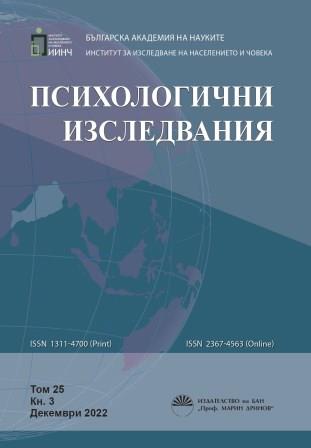The ‘Voter-Consumer’ Analogy Within a Bulgarian Context: Exploring the Parallel Between Impression-Formation in Politics and Business
The ‘Voter-Consumer’ Analogy Within a Bulgarian Context: Exploring the Parallel Between Impression-Formation in Politics and Business
Author(s): Valentina DolmovaSubject(s): Social Sciences, Psychology, Social psychology and group interaction
Published by: Институт за изследване на населението и човека - Българска академия на науките
Keywords: consumer behaviour; political psychology; voters’ choice; impression formation.
Summary/Abstract: Objectives: This paper conducts a comparative, cross-field exploration of the factors that influence impression formation in politics and business. Stepping on the ‘voter-consumer’ analogy, it captures the drivers behind people’s preferences, in each context, and analyzes the possibility of an important overlap. Materials and methods: By performing an interdisciplinary literature review, covering research and findings from the 1700s to today, we systematize and compare theories, factors, and stimuli that affect consumers’ and voters’ impression formation. These efforts are then built upon by conducting independent qualitative research, within the Eastern European frame (and Bulgaria in particular). It engaged experts and laymen in semi-structured interviews, held between April and November 2022. By working on three main hypotheses, we look into the deep cognitive structures behind impression formation and explore a parallel between consumers and voters with great practical implications. Results: Four main factors surfaced as key, irrespective of which situation people operate in. Demographic, psychological, social, and cultural pillars create a framework that both consumers and voters rely on when assessing political or market players. Those pillars are supplemented by sub-factors that enable us to crystalize and test a holistic model. The exploratory interviews also distinguished the existing differences between experts and laymen when forming impressions.Conclusions: This paper not only uncovers a powerful parallel between the cognitive components of impression formation within politics and business but a move towards a unified framework, independent of context. The analogy “consumer-voter” solidifies in Bulgaria. An outcome that can have a number of implications for the management of political and consumer brands.
Journal: Психологични изследвания
- Issue Year: 25/2022
- Issue No: 3
- Page Range: 241-256
- Page Count: 16
- Language: Bulgarian

